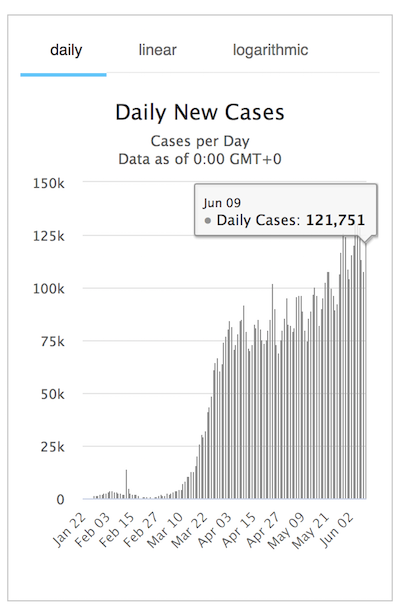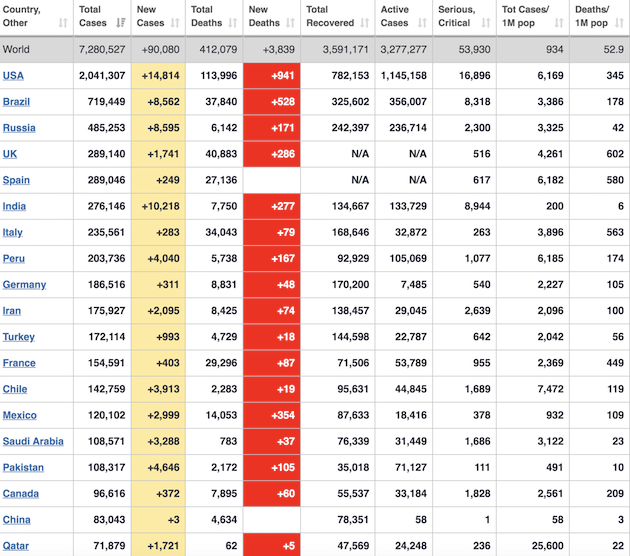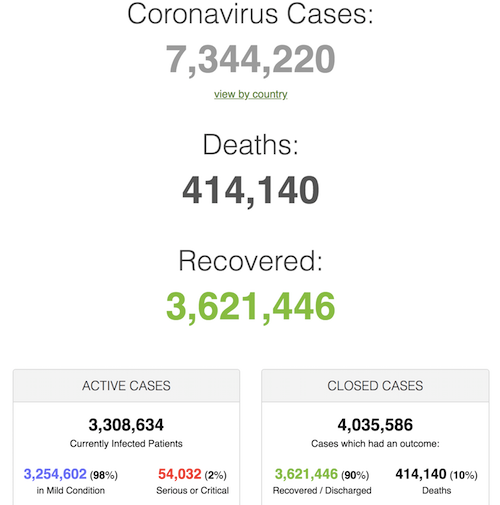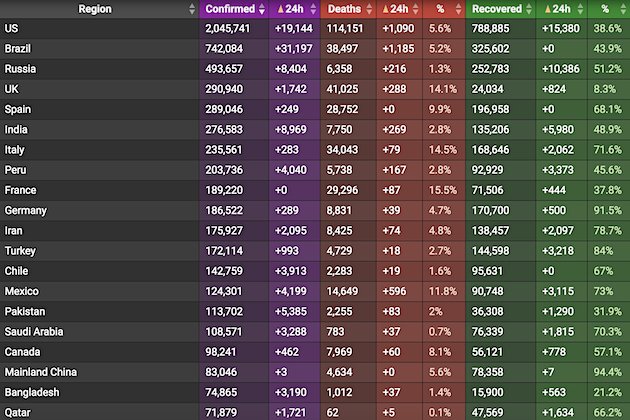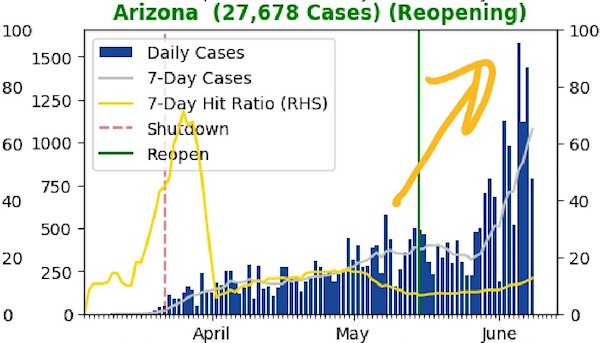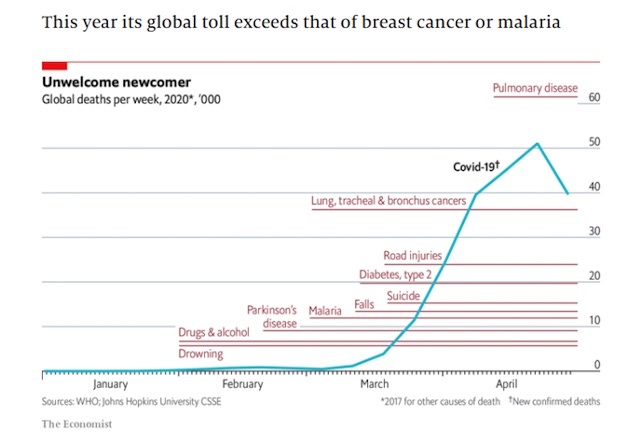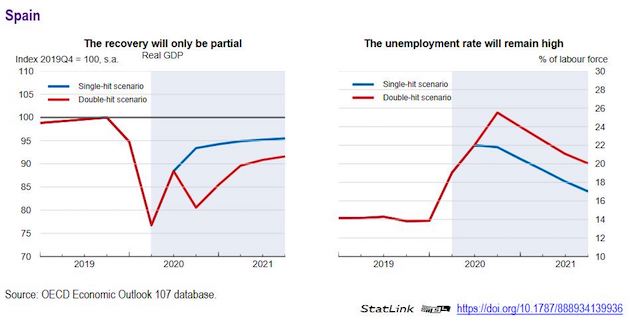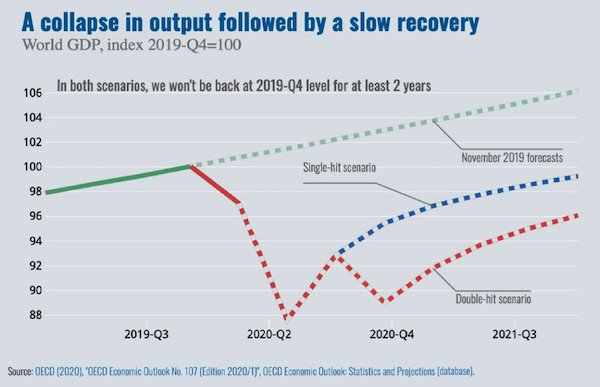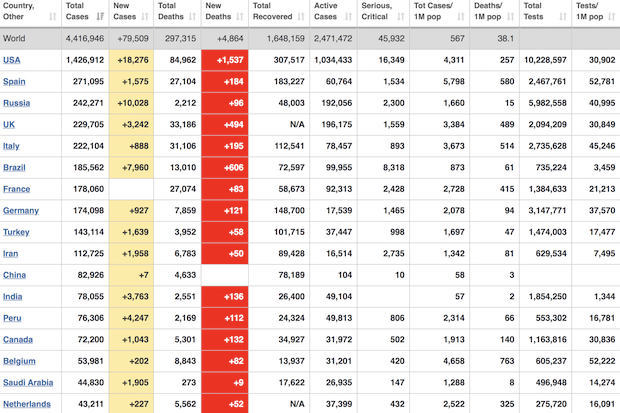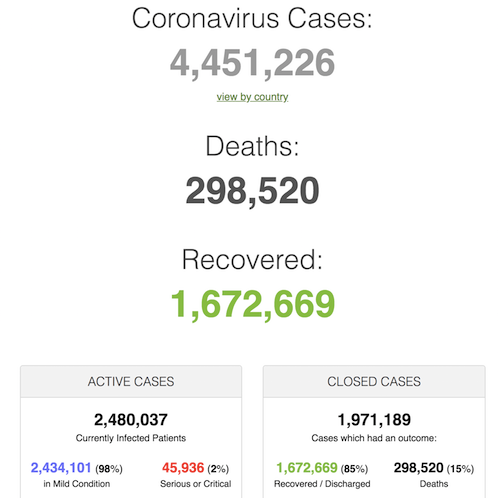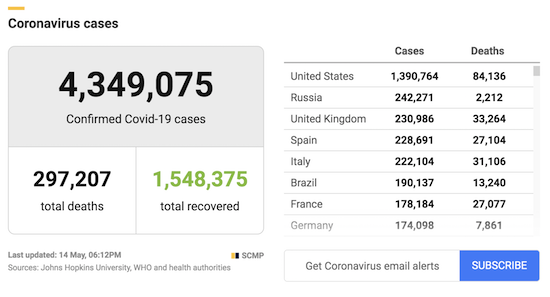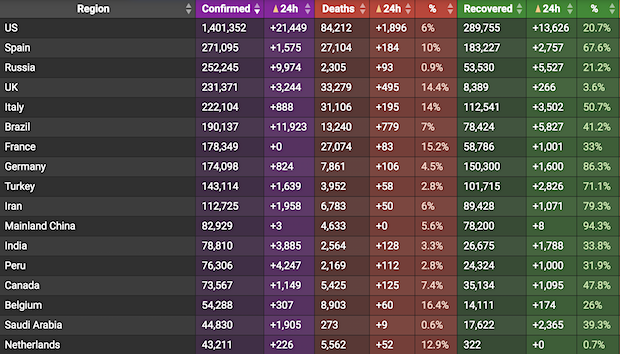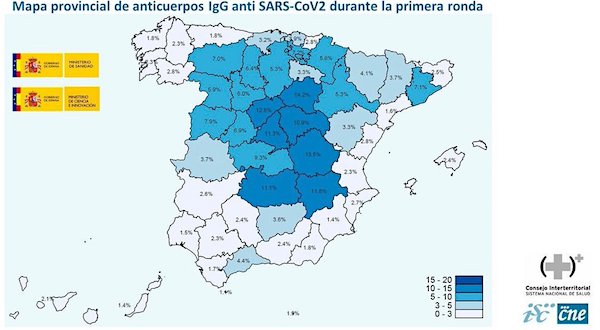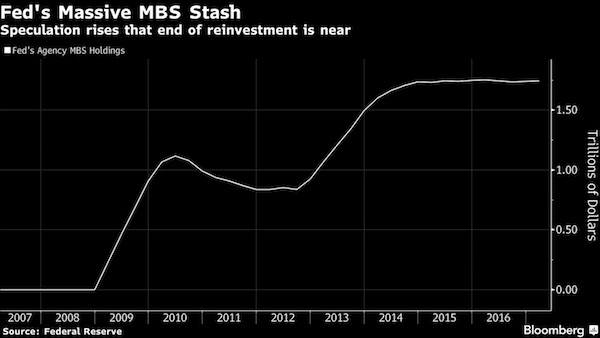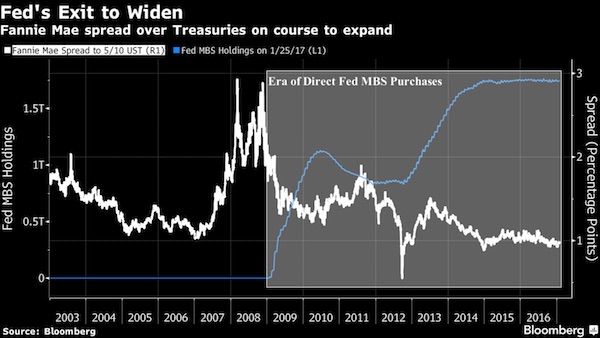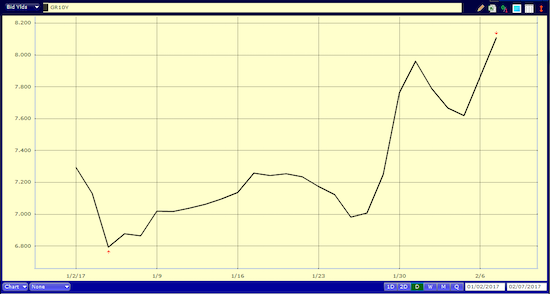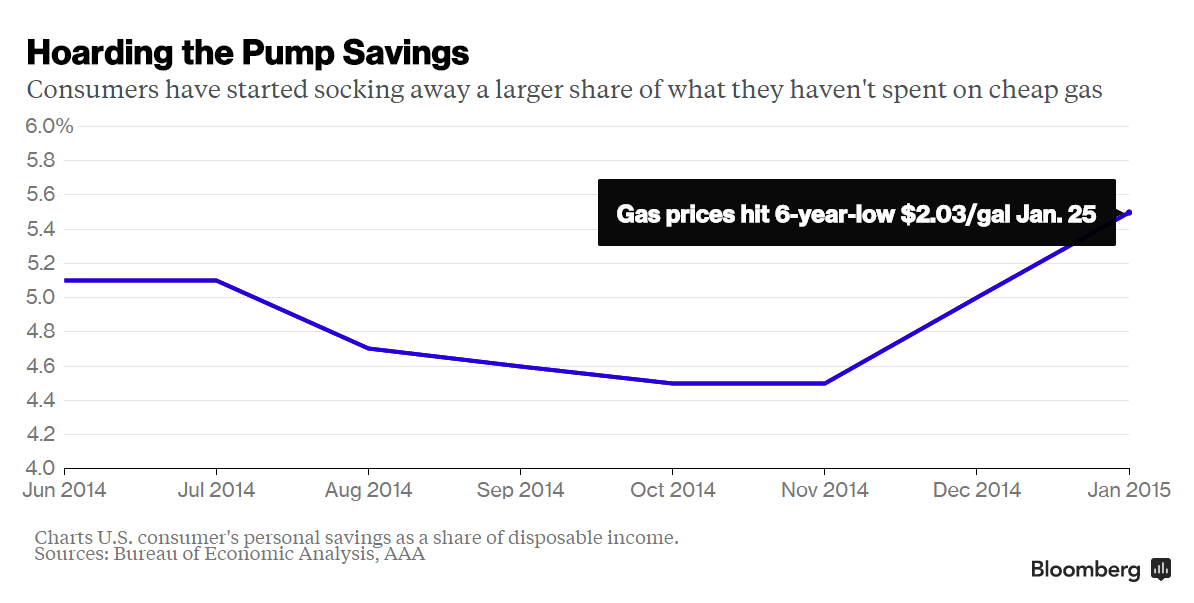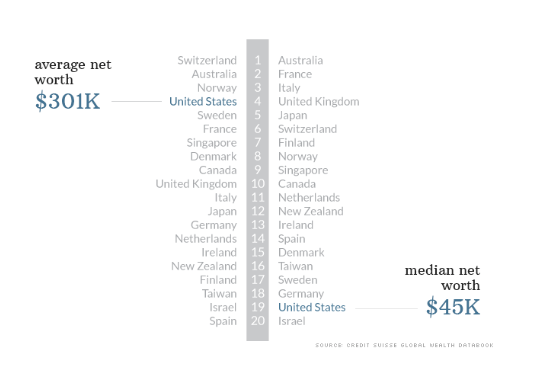
Pablo Picasso Self portrait �1906



https://twitter.com/i/status/1878102416429883684
Cali Fire
You can’t make this up
California called for help to neighboring states for firefighters, “Did all those fire rigs and personnel go straight to the fire lines? No, they did not. They went to Sacramento.”
“Why? Because California says if you send us your fire rig, it must first… pic.twitter.com/3xXmNpwQHg
— Wall Street Apes (@WallStreetApes) January 11, 2025
How Trump was made a felon. Listen well.
https://twitter.com/i/status/1878395613018026473
JD
https://twitter.com/i/status/1878456747850956958
Tucker Newsom
Here’s why Governor Gavin Newsom will NEVER resign despite being responsible for the Los Angeles fires and financially destroying California
Tucker Carlson explains the truth about Gavin Newsom “I know Gavin Newsom. I think a lot about Gavin Newsom, many different things about… pic.twitter.com/2qFl8VzhFb
— Wall Street Apes (@WallStreetApes) January 12, 2025




“..the feasibility of a policy idea depends not on its inherent merits but on whether it falls within the range of public acceptance..”
• Trump Blew The Overton Window So Wide Open, Anything Seems Possible (Peters)
“Wayne, would you like to be governor of Canada?” asked Trump, speaking with his buddy Gretzky, tugging at the Overton Window with all his might. “MAKE GREENLAND GREAT AGAIN,” the President-Elect tweeted on Truth Social, sending his oldest son north with a box of red hats. He wouldn’t rule out taking the Panama Canal by force. And with each such suggestion, the window widened further. The Overton Window is a concept in political science and sociology that refers to the range of policies or ideas considered acceptable in public discourse at a given time. Like most things in life, I learned about it rather late. “We’re going to be changing the name of the Gulf of Mexico to the Gulf of America, which has a beautiful ring that covers a lot of territory, the Gulf of America. What a beautiful name,” Trump said at Mar-a-Lago, prying the window open so wide that nearly anything seems possible, plausible, probable.
Say such things enough times, amplify the words using our AI-enabled social media machines, and presto, nothing’s shocking. But not only that, AI will soon converge with quantum computing. “The Willow processor performed a computation in under five minutes that would take one of today’s fastest supercomputers 10 septillion years. It lends credence to the notion that quantum computation occurs in many parallel universes, in line with the idea that we live in a multiverse,” wrote Google, presenting its latest breakthrough, cracking our perception of reality. As the window widens fully, not only is nothing impossible, but almost anything can seem reasonable. The right and left tails of every distribution lengthen and fatten. And we are left unanchored, adrift, in an endless sea of wild possibility, volatility. “I’m going to give you a report on drones about one day into the administration, because I think it’s ridiculous that they’re not telling you about what’s going on with the drones,” pledged the President-Elect.
Windows. John Overton posited that ideas travel through stages, moving from being seen as extreme or unthinkable to becoming widely accepted and adopted as policy. Democracy was once considered unthinkable. Universal suffrage too. Emancipation. Most things that matter have traveled this path.
Here are Overton’s six stages:
• Unthinkable – outside of acceptable thought.
• Radical – at the edge of discussion.
• Acceptable – starting to gain traction.
• Sensible – reasonable and widely discussed.
• Popular – widely supported.
• Policy – acted upon and implemented.Overton introduced this framework to describe how the feasibility of a policy idea depends not on its inherent merits but on whether it falls within the range of public acceptance. He argued that public policy is constrained by this “window” of acceptable ideas and politicians tend to stay within the window to maintain public support. But what was yesterday’s unthinkable can become tomorrow’s policy as the window widens, shifts left, or right. And what moves the window is naturally tied into one of life’s great mysteries, the superorganism we call humanity. Overton’s framework helps us make sense of society, markets too, risks, opportunities. I try to look at emerging investment themes through this lens. With each move of the window, power structures shift, capital flows adjust, new winners emerge, incumbents struggle or fail. The nimble survive, thrive.
With such stakes, those with influence are desperate to guide the process. Politicians, propagandists, business leaders, religious leaders, union bosses, authors, artists, athletes, advocacy groups, lobbyists, social media influencers, and now AI. There was a time, not so long ago when it was radical or even unthinkable to call network news fake. No longer. And now we openly joke about Canada becoming our 51st state. Where that leads is anyone’s guess, but the window has widened. Greenland’s Prime Minister announced today that he’s ready to speak with Trump. I started trading in 1989 and never in that time has the Overton Window shifted this rapidly across so many dimensions. There’s no precedent for it in modern history. And this dynamic is becoming a new market fundamental.
But it’s not just Trump. Javier Millei has thrown open an anti-statist libertarian window that had been nailed shut for as long as I’ve been alive. Argentina had the best performing stock market in the world last year. This is breathtaking change. And in roughly two short years, we went from the FTX apocalypse to serious talk of strategic sovereign Bitcoin reserves. That window is wide open. Intertwined with both Millei and Bitcoin is radical talk of sovereign insolvency throughout the western world. Before it’s over, make no mistake, we’ll be talking about massive entitlement cuts. But for today, that idea is stuck in the unthinkable stage.

The best idea for Greenland?!
• Trump’s Plan For Greenland ‘Not A Crazy Idea’ – Former Top NATO Commander (RT)
US President-elect Donald Trump’s plan to acquire Greenland from Denmark is not a “crazy idea,” former NATO supreme allied commander in Europe, James Stavridis, has said. He, however, dismissed the possibility of military intervention, instead advocating for economic engagement as a means to strengthen ties with the region. Speaking at ‘The Cats Roundtable’ with John Catsimatidis on WABC 770 radio on Sunday, the retired admiral described Greenland as a “strategic goldmine for the United States,” highlighting its geopolitical position and abundant natural resources. “It sits at the very top of the North Atlantic. It protects approaches to our own country – the Atlantic Ocean – so it is geographically very important,” Stavridis said. He added that the region is rich in rare minerals and likely has vast oil and gas deposits.
“And it’s huge, a huge land mass. It’s three times the size of Texas,” he said, agreeing with the host that Greenland is “almost a better deal than Alaska.” “And here’s my point. We already almost bought Greenland,” Stavridis said. “We almost bought it at the same time when we bought Alaska, back in the 1860s. So it’s not a crazy idea.” The former NATO commander ruled out using “military force to attack Greenland or Denmark,” arguing that the US should focus on economic engagement to counter Russian and Chinese influence in the region. “We could do an awful lot in terms of business, investment, box out the Russians, box out the Chinese, and work very closely with Greenland,” he said. He added that Greenland “doesn’t have to become the 51st state, but it could certainly be an economic objective for us.”
Trump first floated the idea of purchasing Greenland in 2019, a proposal that was swiftly rejected by Danish and Greenlandic officials. He revived the idea last month, describing the ownership of the Arctic island as an absolute necessity” for US security. Greenlandic pro-independence prime minister, Mute Egede, ruled out selling the island but said on Friday that he was “ready to talk” with Trump. “We have a desire to be the master of our own house,” he said. Although Denmark rejected Trump’s proposal, Copenhagen has reportedly floated to Trump the possibility of boosting US military presence on Greenland, which already hosts an American base. A self-governing Danish territory since 1979, Greenland has gradually been pursuing greater sovereignty. The island currently has its own government, but Denmark retains control over foreign affairs and defense.

US needs an arctic base.
• Greenland ‘Most Welcome’ To Join US – Musk (RT)
Tech billionaire Elon Musk has expressed support for Greenland potentially becoming part of the United States, after incoming President Donald Trump renewed interest in acquiring the Danish self-governed island. Musk made the remarks on Sunday, writing on X: “If the people of Greenland want to be part of America, which I hope they do, they would be most welcome!” In doing so, he was responding to a recent poll by the University of Copenhagen indicating that the majority of Greenlanders favor independence. Musk’s comments came after Trump voiced support for the acquisition of the island, describing it as an “absolute necessity” and a “national security” matter. The president-elect first suggested purchasing Greenland during his first term in 2019, but the idea went nowhere at the time due to opposition both from Greenland and Denmark.
Greenlandic Prime Minister Mute Egede has rejected the possibility of selling the island to the US, but said on Friday that “we are ready to talk” with Trump. He noted that “we have a desire for independence, a desire to be the master of our own house… This is something everyone should respect.” On Saturday, Axios reported, citing sources, that Denmark, Washington’s NATO ally, had sent “private messages” to Trump signaling that it is open to discussing boosting US military presence in Greenland. The island of about 60,000 people is already home to a US military base and plays a key role in NATO’s defense because of its strategic location, which allows it to control vital Arctic shipping lanes that are gradually becoming more navigable due to global warming.
An autonomous territory of Denmark since 1979, Greenland has been gradually seeking more sovereignty. The island currently has its own government, but Denmark retains control over foreign affairs and defense. A 2019 poll indicated that 67.8% of Greenlanders favor independence from Denmark within the next two decades.
https://twitter.com/i/status/1878454609720606735

They’ll always depend on someone. Just got to choose who.
• Trump Energizes Greenland Independence Movement (Mish)
The Wall Street Journal reports “Trump’s Talk of Buying Greenland Energizes Island’s Independence Movement”. “Greenland is a self-ruling part of the Kingdom of Denmark. The Danish government says it is willing to grant Greenland full independence if there is local support, and recent Greenlandic elections and polls indicate there is. Trump’s recent threat of a trade war with Denmark is changing the negotiating dynamic, says Ulrik Pram Gad, a senior researcher at the Danish Institute for International Studies. The Danish government now might be more open to agreeing a divorce deal that includes some continued payments to ease Greenland’s path to independence, he says. “My prognosis is that the Danish government will accept it in the next few years,” he says.
“An independent Greenland would then be free to forge its own security or economic ties with the U.S., Denmark or anyone else. In April, Greenland goes to the polls in a vote that could fire the starter gun on independence for the territory of 57,000 people. The last time elections were held, pro-independence parties got 80% of the vote. The prime minister of Greenland made a New Year’s address to the nation saying that a draft constitution for the country has been prepared and that the independence process should be triggered. “It is now time to take the next step for our country,” Múte Egede said. “Like other countries in the world, we must work to remove the obstacles to cooperation—which we can describe as the shackles of the colonial era—and move on.”
“A 2009 Danish law lays out how Greenland can take the first step in the process: It must notify the Danish government, the two must negotiate a divorce agreement and the deal must then be ratified by a referendum in Greenland. The Greenlandic government has commissioned legal experts to work out the details of how step one would work with a two- year deadline. Pro-independence campaigners in Greenland would like to adopt a “free association” model, similar to the relationship between the Marshall Islands and the U.S. or the Cook Islands and New Zealand. Some of Trump’s advisers have privately acknowledged a sale of Greenland is unlikely, but an expansion of U.S. military and financial presence on the island is a possibility. A poll in 2021 showed that 69% of Greenlanders favored more cooperation with the U.S., compared with 39% who favored tighter cooperation with China.”
Trump’s Offer to Buy Greenland. Some people thought I was crazy when I posted Trump’s Offer to Buy Greenland Is Not as Preposterous as it Sounds. A free association model may be more likely, but don’t rule out an outright purchase. There are only about 59,000 Greenland citizens. I proposed an offer of $2 million each. That would only be $118 billion. Greenland would be cheap at double the price if I am correct about the mineral deposits.
Critical Materials Risk Assessment. Our Department of Energy has placed some of the rare earth minerals we need for weapons systems, wind turbines, batteries, semiconductors, cell phones, and aircraft on a critical materials list. Nearly all of them are mined or refined in China. If Trump increases tariffs on China by 60 percent, China could easily shut down rare earth exports. I have been warning about this for years China controls more than 80% of the world’s supply of tungsten and about 90% of global magnesium production China has an effective monopoly over processing major heavy rare earths – Dysprosium (Dy) and Terbium (Tb), and Light Rare Earths – Neodymium (Nd) and Praseodymium (Pr).
On December 3, I commented China Halts Rare Exports Used by US Technology Companies and the Military. This is China’s advance salvo at Trump tariffs. It comes one day after the Biden administration expanded curbs on the sale of advanced American technology to China. The US gets rare earths from allies who get them from China. But don’t rule out the possibility that China shuts off all access.

“There is death all over the place.”
• Trump: California Fires ‘One Of The Worst Catastrophes’ In US History (JTN)
President-elect Donald Trump blasted California and Los Angeles officials for their handling of the wildfires that have been raging for nearly a week. “The fires are still raging in L.A.,” Trump wrote on Truth Social early Sunday morning. “The incompetent pols have no idea how to put them out. Thousands of magnificent houses are gone, and many more will soon be lost. There is death all over the place.” He said that this is turning out to be “one of the worst catastrophes in the history of our Country.” “They just can’t put out the fires. What’s wrong with them?” he continued, according to The Hill. Last week Trump wrote on Truth Social that “Governor Gavin Newscum refused to sign the water restoration declaration put before him that would have allowed millions of gallons of water, from excess rain and snow melt from the North, to flow daily into many parts of California.”
“NO WATER IN THE FIRE HYDRANTS, NO MONEY IN FEMA. THIS IS WHAT JOE BIDEN IS LEAVING ME. THANKS JOE!” Trump posted later that day. Newsom pushed back on X regarding Trump’s claim about the water restoration declaration. Newsweek, among others, fact-checked the claim about the water restoration declaration and concluded, “The notion that Newsom therefore turned down a ‘declaration,’ referring to federal action that Trump introduced anyway, is not accurate. However, it is clear that the governor has opposed Trump’s actions on water policy, drawing a sharp response from Trump in turn.”
The death toll has climbed to 16 as of Saturday evening. LA County has declared a local health emergency as over 40,000 acres have burned, according to Cal Fire. While this is clearly a combination of natural and environmental phenomenon, arson, and government failure and mismanagement, this catastrophe will be analyzed and characterized for decades to come, often through a political lens as the region and the country come to grips with the realities and implications on the ground.

They take it step by step.
• Ukraine Must Acknowledge Territorial ‘Reality’ – Trump Adviser Waltz (RT)
It is not possible to “expel every Russian from every inch” of soil claimed by Ukraine, including the Crimean peninsula, incoming US National Security Adviser Michael Waltz has admitted. Acknowledging “that reality” has become a major step toward resolving the conflict between Moscow and Kiev, Waltz told ABC News in an interview on Sunday, adding that this idea is now in the process of being accepted by Ukraine’s backers. “Everybody knows that this [conflict] has to end somehow diplomatically. I just don’t think it’s realistic to say we’re going to expel every Russian from every inch of Ukrainian soil. Even Crimea – President[-elect Donald] Trump has acknowledged that reality, and I think it has been a huge step forward that the entire world is acknowledging that reality,” Waltz stated.
Waltz suggested that accepting the fact that returning to Ukraine’s original post-Soviet borders is unrealistic now opens the way to addressing the question of “how do we no longer perpetuate this conflict and how… we no longer allow it to escalate in a way that drags in the entire world.” The remarks appeared to be reminiscent of statements previously made by other close Trump allies, including his vice president, J.D. Vance. Shortly ahead of the November election, Vance suggested Kiev could end up in a situation where it decides to cede some lands to Russia.
The stance signaled by the incoming US administration sharply contrasts with the goal repeatedly proclaimed by Kiev of regaining the entirety of its post-Soviet territory. This has been accompanied by an explicit refusal by Ukraine to engage in any meaningful negotiations with Russia. Moscow, however, regards the five formerly Ukrainian regions, including Kherson, Zaporozhye, Donetsk and Lugansk People’s Republics, as well as Crimea, as integral parts of its territory. Crimea broke away from Ukraine in the aftermath of the 2014 Maidan coup in Kiev, joining Russia via a referendum shortly thereafter. The four other regions were incorporated into Russia in late 2022 after the local population overwhelmingly backed such a move during separate referendums. Last year, Moscow demanded that Kiev pull its troops out of the areas it still controls in its former regions in order to begin the long-stalled negotiation process.

“Key obstacles include the legal framework under which the sanctions are authorized and the likelihood of strong congressional resistance..”
• Biden Laying Russia Sanctions Trap For Trump – WaPo (RT)
The administration of US President Joe Biden has set a sanctions trap for President-elect Donald Trump, making it politically and legally challenging to roll back sweeping measures targeting Russia’s energy sector, according to a report by the Washington Post. The newspaper claims that Biden’s actions could create significant hurdles for Trump if he seeks to lift the restrictions. Key obstacles include the legal framework under which the sanctions are authorized and the likelihood of strong congressional resistance. Republican lawmakers have previously pushed for tougher penalties, potentially complicating Trump’s efforts to reverse course. “It’s entirely up to [the next administration] to determine whether, when, and on what terms they might lift any sanctions we put in place,” a senior Biden official is quoted as saying. However, current sanctions laws give Congress the power to block any move to ease restrictions.
This framework leaves Trump with limited options, potentially forcing him to maintain the pressure on Moscow despite his calls for a quick settlement in Ukraine. Michael Waltz, Trump’s incoming national security adviser, has argued for leveraging the sanctions to encourage Russian President Vladimir Putin into peace talks. In an article for The Economist before the election, Waltz wrote: “If [Putin] refuses to talk, Washington can… provide more weapons to Ukraine with fewer restrictions. Faced with this pressure, Mr. Putin will probably take the opportunity to wind the conflict down.” Targeting oil giants Gazprom Neft and Surgutneftegas, as well as 183 oil tankers, the latest US measures are designed to strike at Russia’s energy industry, which helps fund its budget. They also tighten the US Treasury Department’s license, restricting Moscow’s ability to be paid in dollars for energy exports.
The timing – just days before Trump’s inauguration – has drawn accusations from Moscow of deliberate sabotage. “Of course, we are aware that the administration will try to leave the most difficult legacy possible in bilateral relations to Trump and his associates,” Kremlin spokesman Dmitry Peskov said ahead of the sanctions announcement. Biden officials have framed the sanctions as a long-term strategy. “We believe our actions are leaving a solid foundation upon which the next administration can build,” one official said, predicting the measures would cost Russia billions in monthly revenue and force “hard decisions” between sustaining its economy. With the sanctions tied to bipartisan legislation, any rollback is expected to face resistance in Congress, leaving Trump constrained as he takes office, the Washington Post added.

“The sanctions have nothing to do with morality, they have nothing to do with human rights, they have nothing to do with the love of peace, they are simply a stimulus program for the US economy…”
• Anti-Russian Sanctions Killing German Companies – Wagenknecht (RT)
Western sanctions imposed on Russia are “killing” German companies and enriching the American economy, Sahra Wagenknecht, the leader of Germany’s left-wing BSW party, said during an election conference on Sunday. The delegates of the Sahra Wagenknecht Alliance – Reason and Justice (BSW) gathered in the city of Bonn to adopt the platform for the Bundestag election that will take place next month. During her speech, Wagenknecht refused to blame Russia for the ongoing Ukraine conflict. “The sanctions have nothing to do with morality, they have nothing to do with human rights, they have nothing to do with the love of peace, they are simply a stimulus program for the US economy and a killer program for German and European companies,” Wagenknecht said.
She called for the restoration of the gas imports from Russia. “We simply have to tie our energy imports with the criteria of the lowest price and not any kind of double standards or ideology,” she stated. The left-wing politician condemned Washington’s foreign policy, alerting the audience about “the blood trail of US proxy wars” around the globe. She stressed that the German chancellor must not be “a vassal” of the US. BSW co-leader Amira Mohamed Ali said that the party stands for “a strong, fair and sovereign Germany.” The right-wing Alternative for Germany (AfD) party held its conference in Riesa, Saxony on Saturday. The delegates rejected a motion condemning Russia and called for a diplomatic resolution of the conflict. The snap election was called after Germany’s ruling three-party coalition collapsed last month due to disagreements over the budget.

“..especially when people here see young Ukrainian men driving the latest cars or staying in five-star hotels.”
• Poles Tired Of Ukrainians – Defense Minister (RT)
Poles are “fatigued” of Ukrainian migrants in their country, Deputy Prime Minister and Minister of National Defense Wladyslaw Kosiniak-Kamysz has stated. The official partially attributed this sentiment to the sight of young men leading an ostentatious lifestyle in the EU nation instead of defending their homeland. Nearly a million Ukrainians currently reside in Poland, according to UN estimates. While Poland opened its doors to those fleeing the neighboring country following the escalation of the Russia-Ukraine conflict in February 2022, attitudes towards Ukrainians among Poles have somewhat soured since then. In an interview to the Financial Times published on Sunday, Kosiniak-Kamysz said: “Of course there is fatigue in Polish society, and it is understandable especially when people here see young Ukrainian men driving the latest cars or staying in five-star hotels.”
In October, the official voiced identical criticisms, arguing that young Ukrainian men flaunting their wealth were an affront to Polish taxpayers, who contribute to Warsaw’s military and financial aid to Kiev. Around the same time, the Center for Public Opinion Research published a poll indicating that some 67% of Polish citizens were in favor of deporting male Ukrainian migrants back home. Referring to a recent spat over the delivery of the remaining Polish MiG-29 fighter jets, the defense chief on Sunday also suggested that the Ukrainian leadership would do well to “remember that when others were only sending helmets, we sent tanks.”
In November 2024, Kosiniak-Kamysz similarly suggested that Ukrainian leader Vladimir Zelensky had a “short memory.” A month prior, Kiev slammed its NATO backers, and Poland in particular, over their failure to provide previously promised Soviet-era warplanes. Warsaw clarified that it needed the remaining MiG-29 fighter jets to ensure its own security before the F-35s that it has ordered arrive. In his interview to the FT, Kosiniak-Kamysz also ruled out deploying Polish peacekeepers to Ukraine once Kiev and Moscow seal a truce, calling for “greater burden sharing and diversification within NATO” instead.

“Trump has his work cut out for him. But he is the only person in the world today who stands a chance at ending this war.”
• The Walls Close in on Zelensky (Jim Rickards)
The walls are closing in on Ukraine’s President Zelensky. In a meeting with allies in Germany this week, the embattled leader requested NATO troops on the ground in Ukraine. “Our goal is to find as many instruments as possible to force Russia into peace. I believe that such deployment of partners’ contingents is one of the best instruments. Let’s be more practical in making it possible.” Nothing about this proposal is “practical”. Even if Zelensky is speaking about peacekeeping troops as part of a settlement, which isn’t clear, it’s still a fundamentally crazy idea. Simply put, it would bring us to the brink of nuclear war. Of course, this isn’t the first time Zelensky has suggested that NATO should send troops to fight and die in this war. But this latest instance is noteworthy because it comes just ahead of President Trump’s inauguration. Given the circumstances, the move signals desperation.
President Trump has stood his ground on this issue thus far. Just this week he acknowledged that NATO’s courtship of Ukraine was a major cause of the war, noting that if Ukraine were to join the Western military alliance, “then Russia has somebody right on their doorstep, and I could understand their feelings about that.” Trump correctly blames Biden for promising Ukraine NATO membership and escalating the war. In early December, Trump’s team conveyed the message that Ukraine would need to make major concessions to end the war. Those concessions will probably involve giving up land already captured by Russia, agreeing to a form of disarmament, and pledging to never join NATO. This was an important shift, as it became clear even to the biggest hawks that Ukraine wasn’t going to recapture much, if any lost territory. And forget about Crimea.
Trump’s views on Ukraine are certainly unique in Washington D.C., But his base is ready for the war to end, and this issue was one of the keys to his landslide victory. Meanwhile, it’s unclear whether Zelensky and the Ukrainian deep state would agree to such concessions. It’s also unclear whether they truly have a say in the matter, unless they’re prepared to go it alone against Russia. But it’s also not clear if Russia would agree to such a deal. Putin could insist upon an end to sanctions on Russia, and a return of their frozen assets.There’s also a chance that Russia won’t want to give Ukraine a break to re-arm itself. NATO has already pulled a fast one on Russia once, during the Minsk accords from 2014-2021. Former German Chancellor Angela Merkel has admitted this peace deal was in actuality a stall tactic to give Ukraine more time to build its military capabilities.
So President Putin may want to press the attack, eliminate Ukraine’s military capabilities, and gain more territory. Russia is advancing along almost the entire frontline. Its use of hypersonic missiles, artillery, drones, and guided glide bombs has devastated Ukrainian strongholds. Ukrainian forces have been forced to fall back into far less favorable defensive positions, and this does not bode well for their outlook. The waste of life in this conflict is exponentially larger than the public has been told. In December of 2024, President Zelensky claimed that only 43,000 of his nation’s troops had been killed in the war so far. In truth, upwards of 600,000 Ukrainian soldiers have likely died. On paper, the Ukrainian army is over one million strong. But across the line, foxholes are empty. Where are all the soldiers?
Russia has likely lost at least 100,000 soldiers KIA as well, though they haven’t released any specific numbers. When the truth about this war comes out, it will shock anyone who is still paying attention at that point. Make no mistake. Trump has his work cut out for him. But he is the only person in the world today who stands a chance at ending this war. I believe he’ll get it done. But the cost in terms of geopolitical capital may be high.

Paul Craig Roberts: “I keep waiting [for] the day that every member of the French Legion of Honor is arrested for being a patriot..”
• In the Western World You Become Respectable by Selling Out the People (PCR)
Two themes to which I return are the difficulty of effecting change and the disappearance of ethnic nations in the West. What is going on right now in France is a story of both together. Marine Le Pen’s political party, National Rally (formerly National Front), is the largest French party, but it is kept from office by all other parties combining against it. Le Pen’s party has stood for French ethnicity as opposed to a diverse Tower of Babel. In Europe an ethnic-based national state has become associated with Hitler’s Third Reich. Consequently, the French establishment has branded the National Rally racist and even Nazi. By branding the National Rally in this way, the French establishment endeavors to make Le Pen’s party, not immigrant-invaders, the main threat to France. The French establishment and French left-wing have equated hating Le Pen with resisting fascism.
But it is not working. Native French are awakening to the fact that their civilization and their culture are being transformed by waves of immigrant-invaders and that France is ceasing to be French. So the French establishment has focused on Marine Le Pen herself with the lawfare made famous in America with the false indictments of Donald Trump. Le Pen faces the prospect of a devastating prison sentence plus five years of political ineligibility on the charge that she used European Parliament funds where she is represented to pay for National Front employees. All parties do the same thing, but the investigation was limited to Marine Le Pen. We are witnessing the French establishment’s selective use of law to eliminate a perceived threat.
On January 7 Le Pen’s father, Jean-Marie, the founder of the party, passed away. The French left-wing, or perhaps it was the Establishment, celebrated his death with fireworks on the Place de la Republique. French Establishment commitment to diversity, the EU, and globalism requires the death of a French patriot to be celebrated. I keep waiting [for] the day that every member of the French Legion of Honor is arrested for being a patriot. One would think that the insult to Jean-Marie and the sentencing of Marine would strengthen Le Pen’s party as France’s only representative. But according to an article by Pierre Levy the National Rally’s new leader, Jordan Bardella, craves respectability. He has succumbed to the temptation of gaining office by making the National Front acceptable to the establishment.
The question in my mind is: Will Trump also choose to become respectable? When change is desperately required, dictatorships are more easily overthrown than democracies. In democracies the system permits well-financed interest groups to dominate the countries political, legal, media, entertainment, and educational institutions. A ruling establishment becomes institutionalized in the countries’ institutions. Attempts to bring governance back to service to the people from service to the establishment requires the equivalent of a religious revival or the blood of a Leninist revolution, the consequences of which can be worst than what was overthrown. Over the course of my lifetime I have witnessed the dissolution of the belief system that is Western civilization. The voices that have attempted to defend civilization have been weak. The very definition of civilization has changed. Are Western peoples sufficiently aware and educated to face this challenge?

“Above all, the administration must not redirect targeting—it must eradicate these stains on the American soul.”
• Weaponizing Law Enforcement Against Americans (Spivak)
Reports released by two House committees in December shine a harsh light on the deceptions and oppressive tactics utilized by numerous federal agencies, the Intelligence Community, and leaders of the Democratic Party. During the last year of the first Trump Administration, agencies within the Department of Homeland Security (DHS), State Department, and Justice Department (DOJ) initiated improper contacts with media in an effort to censor conservative views. These agencies also took steps to interfere in the 2020 election to benefit Joe Biden. The Biden-Harris Administration supercharged the weaponization of the federal government against the American people. With the active participation of the media, the administration followed a whole-of-government effort to collude with, and coerce, the media to suppress and censor conservatives and others who opposed progressive goals.
It threatened parents with terrorist “threat tagging” and visits from the FBI for speaking their minds, stretched statutory authority beyond recognition to prosecute Donald Trump and his supporters, harassed and penalized whistleblowers, invaded bank privacy, sent heavily armed federal agents into private homes, and brought an unprecedented barrage of litigation against states to force them into compliance with the administration’s unconstitutional goals. On December 17, 2024, the House Administration Committee’s Subcommittee on Oversight (Administration Subcommittee) released its report on the events surrounding January 6, 2021 and the politicization of the Select Committee (January 6 Committee) established by then-Speaker Nancy Pelosi to investigate those events. Three days later, the House Judiciary Committee’s Select Subcommittee on the Weaponization of the Federal Government (Justice Subcommittee) released a 17,000-page final report detailing the administrative state’s and the Biden-Harris Administration’s repressive censorship enterprise and other abuses.
Based on the evidence described in these reports, there are two inescapable conclusions: (1) regardless of the administration in office, the Deep State in DHS, DoD, DOJ, IRS, the Intelligence Community, and other agencies have arrogated to themselves unconstitutional and unlawful powers to infringe individual liberties, expand rules, and use force to suppress conservatives’ goals, religion, and free speech; and (2) the Biden-Harris Administration, Pelosi, and leading Democrats endorsed, supported, facilitated, and led the expansion of these efforts. These reports are products of extensive investigations and include copious evidence. Though the Administration Subcommittee’s report can be faulted for its angry tone, a vainglorious pandering to its chairman, Barry Loudermilk, and sometimes hyperbolic conclusions, it provides compelling evidence of wrongdoing.
Broader in scope and more thoroughly researched, the Justice Subcommittee’s report is the product of a detailed inquiry into a broad betrayal of trust. Justice Subcommittee Chairman Jim Jordan is to be commended for uncovering problems and taking steps that have already ameliorated some of these practices. The findings in these reports show why the Trump Administration must clean house. That is why Trump has nominated sometimes controversial individuals such as Tulsi Gabbard, Kash Patel, Pete Hegseth, Pam Bondi, John Ratcliffe, Russell Vought, and Rick Grenell. It explains Trump’s impulsive, properly withdrawn nomination of Matt Gaetz and the creation of DOGE as an advisor outside of government. It is why so many of Trump’s appointees have expressed concern about the agencies they have been selected to lead. Above all, the administration must not redirect targeting—it must eradicate these stains on the American soul.

Feels like the Matrix.
• Tulsi Gabbard Now Supports FISA-702 to Get Confirmed as Head of DNI (CTH)
As the story is told, and it aligns with every scintilla of researched data on the darkest and deepest elements of the Deep State, DNI nominee Tulsi Gabbard has reversed her position and will now support FISA-702, the warrantless searches of American communication and electronic metadata. Apparently the FISA process and the 702 aspect (specific to American citizens) is the line in the sand the Senate Select Intelligence Committee has drawn. If Tulsi Gabbard does not support it, her confirmation is in doubt. As a result, she has reportedly reversed her position and now supports it. This is absolutely par for the course.
It should be remembered, in the last reauthorization of FISA-702 congress exempted themselves from the warrantless search and surveillance system used by the U.S. Intelligence Apparatus. Congress forbids the FBI or any entity with access to the NSA database, from being allowed to use the process to search themselves or their staff. However, every other American does not enjoy this same protection. After spending years asking every representative of consequence why they support the FISA-702 process, I can tell you every one of them says they believe it is needed because the IC tells them there are just too many domestic terror threats that need to be monitored. It is impossible to find a person in DC who will forcefully try to stop FISA-702 reauthorization.
If you ask me why in hindsight, I now take the position that FISA-702 is the gateway to the massive surveillance system currently being put into place using Real ID and the AI facial recognition software provided by Palantir (CIA exploit). In essence, the gateway that allows the full-scale surveillance state, is opened by the prior authorization of FISA-702 that negates any 4th amendment protection. Why? Because all of the surveillance mechanisms within the network being updated and enhanced by AI search and capture, comes from the IC being allowed to exploit the NSA database. That same database access allowance is the targeting mechanism for FISA-702. If warrantless searches of the NSA database were stopped, the Palantir/IC and Tech Bro collaboration could hit a brick wall. Against this backdrop, the SSCI telling Tulsi Gabbard that her nomination approval is contingent upon her support for FISA-702, simply makes sense.
WASHINGTON DC – […] Multiple senators from both parties who met with the former Hawaii lawmaker in recent days told us they emerged from those sessions unsure about Gabbard’s position on the 702 program. During these meetings, senators have pressed Gabbard on her previous public statements on the issue, as well as her votes against 702 reauthorization throughout her eight years in Congress. GOP national security hawks in particular viewed this as problematic, we’re told, fueling renewed doubts about her confirmation prospects. Sen. James Lankford (R-Okla.), a member of the Senate Intelligence Committee, suggested on a WSJ podcast Wednesday that Gabbard should disavow her previous opposition to the 702 program.
“Senate Intelligence Committee Chair Tom Cotton (R-Ark.) also sent us a statement Thursday night supporting Gabbard’s 702 stance — a key indicator of how the GOP leadership is thinking about her nomination. “Tulsi Gabbard has assured me in our conversations that she supports Section 702 as recently amended and that she will follow the law and support its reauthorization as DNI,” Cotton said. That last part is important because, if confirmed as DNI, Gabbard would need to certify the statute annually in order for intelligence collection to continue under the 702 program. This is also a big part of the reason why the DC Deep State will easily confirm Kash Patel to be Donald Trump’s FBI Director. Kash Patel is a big believer in the value of FISA-702.”

“Asked if he would pardon himself, Biden dismissed the idea, saying, “I didn’t do anything wrong.”
What does that say about those he did hand a pardon?
• Biden Eyes Preemptive Pardons Amid Trump’s Return (RT)
US President Joe Biden is considering issuing preemptive pardons for individuals who may be targeted by the incoming administration of President-elect Donald Trump. Trump, who defeated Vice President Kamala Harris in the 2024 election, is set to return to the White House on January 20. “There’s still consideration… but no decision,” Biden told reporters at the White House on Friday, in response to a question regarding potential preemptive pardons. “It depends on some of the language and expectations that Trump broadcasts in the last couple days here as to what he’s going to do.” Biden withdrew from the 2024 presidential race in July after concerns arose within the Democratic Party following a June debate performance against Trump which raised doubts about his viability as a candidate. He ultimately endorsed Harris, who lost the general election to the Republican candidate, Trump.
The president-elect has expressed intentions to prosecute perceived “enemies,” including Harris and “the most corrupt president in the history of the United States of America, Joe Biden, and the entire Biden crime family.” Trump also criticized Biden for pardoning his son Hunter in December. In a reversal of his pledge to not do so, Biden pardoned Hunter, who was convicted of tax evasion and gun charges and was set to be sentenced in December. Trump called the decision a “miscarriage of justice,” while referencing the people who were jailed for the January 6 Capitol riots. “Does the Pardon given by Joe to Hunter include the J-6 Hostages, who have now been imprisoned for years? Such an abuse and miscarriage of Justice!” Trump wrote on Truth Social. The president-elect also called for investigations into former President Barack Obama and Liz Cheney, a high-profile Republican critic of Trump.
Ahead of the November 2024 election, Trump threatened unprecedented prosecution for individuals he accused of potential election cheating. “Please beware this legal exposure extends to Lawyers, Political Operatives, Donors, Illegal Voters, & Corrupt Election Officials,” Trump posted on Truth Social. He previously claimed widespread fraud in the 2020 election. Trump also stated last year that he would fire Jack Smith, the Justice Department’s special counsel overseeing criminal investigations into the Republican president-elect. Smith resigned on Friday. Biden described Trump’s intentions to prosecute political opponents as “outrageous.” Asked if he would pardon himself, Biden dismissed the idea, saying, “I didn’t do anything wrong.”
The president likely possesses the constitutional authority to issue broad preemptive pardons for federal offenses committed in the past, even if charges have not yet been filed. However, this authority does not apply to state crimes or future offenses. The types of pardons Biden might consider would generally fall within his executive power.

More pardons. But these ones are not pre-emptive.
• Vance Says Trump Won’t Issue Pardons for Violent Jan. 6 Defendants (ET)
Vice President-elect JD Vance said on Jan. 12 that individuals who were violent during the U.S. Capitol breach on Jan. 6, 2021, “obviously” should not be pardoned. President-elect Donald Trump has vowed to use his clemency power for people who have been charged in connection with the incident over the past four years. Those who “protested peacefully” on Jan. 6 should receive a pardon, Vance told Fox News. He added that there is also a “little bit of a gray area” in some of those cases. “I think it’s very simple,” Vance said. “If you protested peacefully on Jan. 6 and you’ve had [Attorney General] Merrick Garland’s Department of Justice treat you like a gang member, you should be pardoned. If you committed violence on that day, obviously you shouldn’t be pardoned.”
More than 1,500 people have been charged with federal crimes in connection with the Capitol breach, according to Department of Justice records. A number of people were charged with misdemeanor offenses for entering the Capitol in an unauthorized manner, and some were charged with felonies. Leaders of the Oath Keepers and the Proud Boys groups were convicted of seditious conspiracy for what prosecutors described as plots to use violence to stop the peaceful transfer of power from Trump to then-President-elect Joe Biden. Vance said on Jan. 12 that he believes that “a lot of people” have been “prosecuted unfairly” over the past several years. “We need to rectify that,” Vance said. “We’re very much committed to seeing the equal administration of law.”
Also on the morning of Jan. 12, Vance responded to critics on social media who said that his comments to Fox News didn’t go far enough, with some saying that all Jan. 6 defendants should be pardoned. “I’ve been defending these guys for years,” Vance wrote on social media platform X. “The president saying he’ll look at each case (and me saying the same) is not some walkback … I assure you, we care about people unjustly locked up. Yes, that includes people provoked and it includes people who got a garbage trial.” That comment came in response to a prominent conservative social media account’s statement on Jan. 12 that new footage has shown “cops shooting innocent J6 protesters and [Vance] goes on Fox News and tells the world that only non violent protesters should get pardoned … better rethink what you just said JD.” Vance noted that he donated to a Jan. 6 “political prisoner fund” and was criticized over it during his run for Ohio’s Senate seat.
In a wide-ranging news conference last week at his Florida Mar-a-Lago residence, Trump suggested that he would initiate “major pardons” for individuals arrested in the aftermath of Jan. 6. A reporter asked him, “You said on your first day of office you were going to pardon Jan. 6 defendants. Are you planning to pardon those who were charged with violent offenses?” “Well, we’re looking at it, and we have other people in there,” Trump said. “People that didn’t even walk into the building are in jail right now. “We’ll be looking at the whole thing. But I’ll be making major pardons, yes.” The president-elect has said on multiple occasions that he would carry out the pardons quickly after he is sworn into office on Jan. 20.

Fake anger.
• Biden Calls Meta Decision to End Fact-Checking Program ‘Really Shameful’ (ET)
President Joe Biden has shared his disapproval at Meta’s decision to do away with its current social media fact-checking program. This week Meta, which owns the Facebook and Instagram social media platforms, announced it would stop using its third-party fact-checking program for U.S.-based content review purposes. Meta CEO Mark Zuckerberg said he made the decision because the existing fact-checking program has become “too politically biased,” resulting in censorship and a loss of trust. “It’s time to get back to our roots around free expression on Facebook and Instagram,” he said in a Jan. 7 video statement. Asked for his opinion on the move at a Jan. 10 press conference, Biden said, “It’s just completely contrary to everything America is about.”
Up until this week, Meta had partnered with the International Fact-Checking Network (IFCN) to run its third-party fact-checking service. The IFCN is administered by the Poynter Institute, which also operates the PolitiFact fact-checking publication. “The idea that, you know, a billionaire can buy something and say ‘by the way from this point on, we’re not going to fact-check anything’ and you know when you have millions of people reading, going online reading this stuff it’s—anyway, I think it’s really shameful,” Biden said. Meta is not doing away with fact-checking outright. Rather, Zuckerberg said Meta’s platforms will move toward a “more comprehensive community notes” style system, similar to the one employed by social media platform X. He will start the new model in the United States.
https://twitter.com/i/status/1878485939091025933
Rather than relying on a fact-checking organization such as the IFCN to review content, X’s community notes feature allows users to weigh in directly. X users may suggest a fact-checking note on controversial posts on the platform, and then provide feedback on whether a suggested fact-checking note is itself accurate, and necessary for the particular post. Posts that have been flagged with sufficient community input display an attached fact-checking note explaining why the particular post is inaccurate or may be missing important context. Zuckerberg also announced that Meta’s content moderation team will be moved out of California to Texas “where there is less concern about the bias of our teams.” Zuckerberg and other Meta officers have defended the move as needed to restore free speech and expression to their platforms.
In a Jan. 7 blog post, Meta’s chief global affairs officer, Joel Kaplan, said as well-intentioned as their prior fact-checking efforts had been, “they have expanded over time to the point where we are making too many mistakes, frustrating our users, and too often getting in the way of the free expression we set out to enable.” “Too much harmless content gets censored, too many people find themselves wrongly locked up in ‘Facebook jail,’ and we are often too slow to respond when they do,” Kaplan said. Meta’s fact-checking and content moderation decisions had been a point of contention during the 2020 presidential election cycle.
In October 2020, the Meta platforms reduced the reach of posts linking to articles by The New York Post concerning a laptop that then-candidate Joe Biden’s son, Hunter Biden, had reportedly abandoned at a Delaware computer repair shop. The New York Post’s articles detailed the contents of the laptop, including documents indicating the elder Biden had some level of interaction with his son’s foreign business partners. In a Jan. 10 interview with podcast host Joe Rogan, Zuckerberg alleged that officials in the Biden administration routinely contacted Meta, with demands that they remove or suppress certain content, including memes and satirical posts. “Basically these people from the Biden administration would call up our team and like scream at them and curse,” Zuckerberg said.




Starlink
https://twitter.com/i/status/1878673305588359296
Elon Musk stepped up big time, donating Starlink to help Los Angeles firefighters and people stay connected during the chaos. Say what you want about the guy, but who else is making moves like this when it counts? pic.twitter.com/TlKozxKVjs
— Desiree (@DesireeAmerica4) January 12, 2025

Tumbling
https://twitter.com/i/status/1878690946340270500

little men
https://twitter.com/i/status/1878695718132813987

Support the Automatic Earth in wartime with Paypal, Bitcoin and Patreon.














